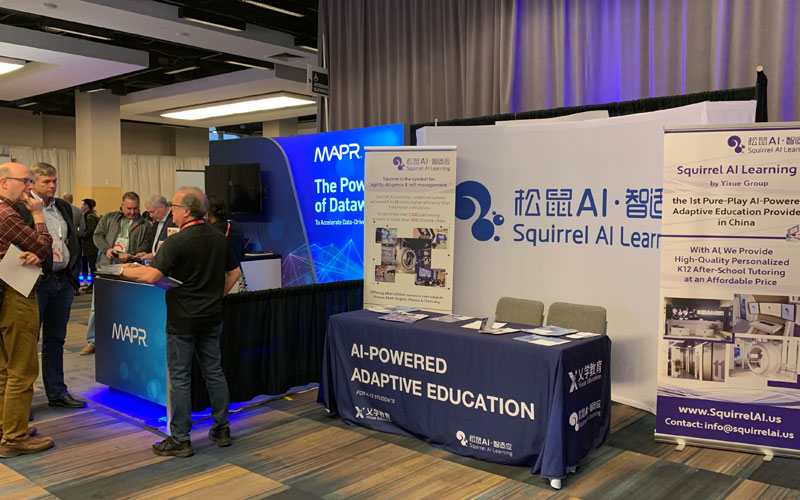Mikel Amigot
Developments in AI are now accelerating at an unprecedented rate. Several corporations are deploying AI at scale, as we noticed this week at the O’Reilly AI Conference in New York.
There is faster hardware for sensing, model training and model inference; we saw new cloud and on-premise tools, architectures and pipelines. Among those impactful implementations, we didn’t find emerging developments for our learning industry.
Only one exhibitor out of 28 was on education: a Chinese company called Squirrel AI Learning, squirrelai.com. It featured itself as “the first pure-play AI-powered adaptive education provider in China”. “We provide personalized and high-quality K-12 after-school tutoring at an affordable price”.
This company, owned by Yixue Group, says it has opened 1,700 schools, with a teaching staff of 3,000 in 200 cities across China. Apparently, it accumulates funding of $15 million.
Is China so ahead in AI-driven education?
We attended the O’Reilly-organized press conference with the experts in that industry to inquire about it.
Martial Hebert, a leading researcher and Director of Carnegie Mellon Robotics Institute, explained to us that there are a number of elements of AI that can be used on education at scale such as facial recognition.
This is an application which some companies already use in China, including the parent organization of Open edX-based platform XuetangX.com.
However, the state of this technology seems to be at a very early stage.
The goal of all of these tools, including the data analytics approach, aligns with the adaptive and personalized learning requirement. It means being able to respond to the student’s interaction in real-time by automatically providing her with individual support.
In small traditional classrooms, the lack of personalized attention can be tackled with an AI-based face recognition solution, especially if there is no data-protection concern, as it happens in China.
The machine reads the learner’s expression in order to determine whether he or she is struggling to grasp a subject. If so, the instructor receives a notification and modifies the lessons to respond accordingly.
This can be done with a reduced number of students, but is it feasible in online education at scale?
Carnegie Mellon is working on it, but it doesn’t seem to be close.

 En Español
En Español





















